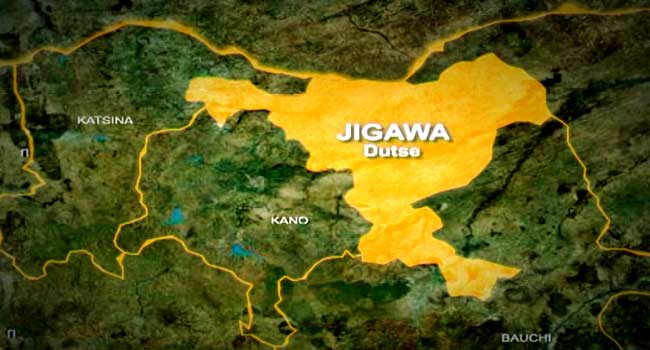News
Jigawa Governor tells Nigerians not to defend themselves against terrorists, as massacre go unchallenged

Amid rising insecurity in parts of Nigeria, Governor Umar Namadi of Jigawa State has cautioned against calls for self-defence, warning that such a move could plunge the country into anarchy.
Speaking on Channels Television’s Sunrise Daily on Monday, Governor Namadi responded to recent comments by retired General Theophilus Danjuma, who urged Nigerians to defend themselves against bandits and armed attackers, particularly in Benue and Plateau States.
General Danjuma, a former Minister of Defence, had argued that reliance on the government for protection was no longer tenable given the spate of violence and killings in the country.
“It is now very clear that the government alone cannot protect us. We must stand up and defend ourselves, our families, and our lands before these criminals overrun the entire country,” Danjuma said during a public event in Takum, Taraba State, on Saturday.
But Governor Namadi rejected that approach, describing it as a dangerous path.
“He (T.Y. Danjuma) is a very senior security person, and his words deserve respect and analysis,” Namadi said. “But I think if you say citizens should be allowed to defend themselves, you’re causing anarchy. I don’t think we’ve reached that level yet.”
He argued that rather than encourage armed self-defence, the government at all levels must continue to strengthenNigeria’s security architecture.
“The government is doing its best in terms of security arrangements. If you allow the people to defend themselves, that means you are encouraging a crisis between farmers and herders,” the governor warned.
Namadi cited his administration’s approach to resolving the long-standing farmer-herder clashes in Jigawa State as a better alternative. According to him, when he assumed office, he prioritised non-violent conflict resolution strategies.
“When we came in, we decided to employ a lot of strategies and tactics, including dialogue,” he said. “We engaged traditional rulers, as well as representatives of both farmers and herders. We sat down, reached a consensus, and established standing committees to reconcile all parties.”
He added that these efforts helped halt a decades-long conflict:
“The people now understand that the 25 years spent fighting and killing each other were not worth it. Today, they are able to work, interact, and live together in peace.”






